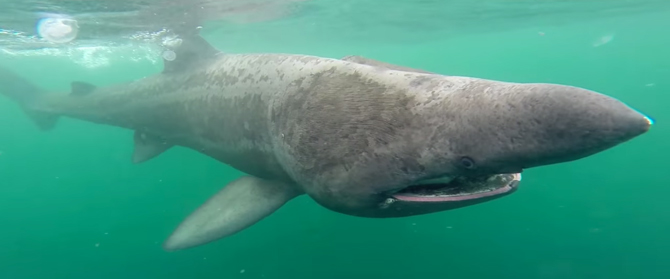This is the sort of video during which you’ll inexplicably find yourself holding your breath. Not because you feel like you’re underwater, but because of the awe-inducing spectacle that is nature.
And this cold water paradise off the northwest coast of Scotland — captured by underwater camera and overhead drone — runs the gamut in the way of marine life, from seals and dolphins to the off-centered yet majestic basking shark.

While we (outside of Europe and, specifically, the United Kingdom) have been privy to the beautifully terrifying truths of cold water surfing, where men step out towards the edges of sanity, the marine life has been much less in focus. And after watching this video, we’re wondering why.


